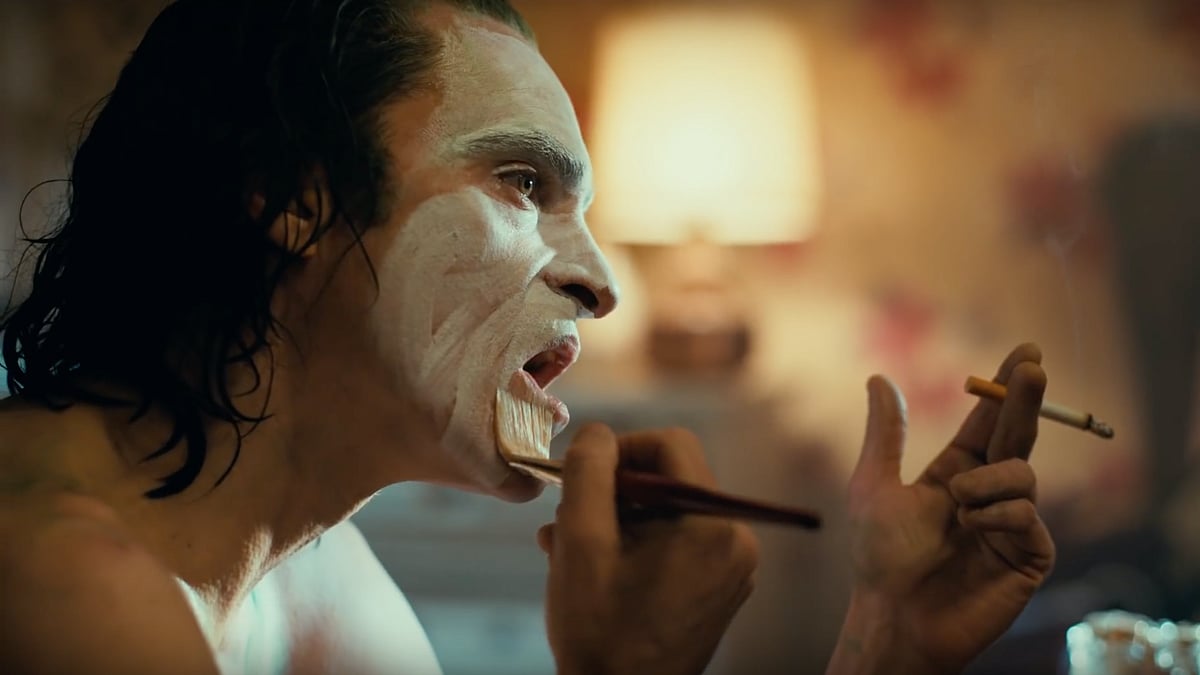‘Joker’ Strips the Villain of Madness & Makes Him Banal Instead
‘You wanna know how I got these scars?’ No, I don’t think we do, actually. That knowledge has ruined the game.

advertisement
Giving a backstory to one of the most iconic comic villains is no joke(r), and an eight-minute standing ovation at the film’s Venice premiere simply proves that director Todd Philips and actor Joaquin Phoenix played their cards right – especially since we are talking about a character who has thrived on the lack of an origin story (or rather, multiple conflicting ones) and resisted one for decades.
But does The Joker even really need a backstory?
But before I put forth my argument and earn a considerable amount of hate, fair warning: Spoilers ahead!
Philips’ Joker portrays Phoenix as a struggling stand-up comedian (Arthur Fleck) who gets beaten down by society’s evils in Gotham or a Scorsese-esque New York in the middle of a sanitation strike. All of this, complemented by a series of revelations about his life and a long stroke of bad luck, ultimately drives him 'crazy’.
If that didn’t give away that the movie took its cues from ‘The Killing Joke’ (a graphic novel of one of the most famous Joker origin stories) then certainly Phoenix telling his counsellor “I had a bad day,” made it obvious.
But that same graphic novel has the clown prince of crime saying:
...and this is the essence of the Joker – the randomness, the unpredictability, one that strikes without warning. He is the personification of evil and terror with not an inch of logic behind him. His defining credo is, as Michael Caine’s Alfred put it in The Dark Knight:
It is this sheer lack of logic, lack of motivation (naturally, with no backstory), and mysteriousness that makes up The Joker. He is not a character you can sympathise or empathise with. But Philips’ joker adds logic to that evil, giving the audience a peek into his mind and emotions – adding a ‘WHY’ to his actions. A character who seemingly believes in nothing and is the distilled human form of an uncaring universe, is suddenly made... predictable.
By the end of the movie, you might not agree with his actions, but you certainly end up sympathising with him. And that successfully strips him of his ‘madness’, making him just another man lashing out at the world.
‘Do You Wanna Know How I Got These Scars?’
While a good number of people are comparing Phoenix’s performance to Heath Ledger’s iconic portrayal of The Joker in The Dark Knight, what sets Ledger’s Joker apart is that very randomness. His Joker appeared out of nowhere, set Gotham on fire and turned the world upside down, leaving everyone wondering why.
A classic example of this randomness throughout the movie is how he would tell a different tale about how he got his scars.
But the dealbreaker here is certainly the damned laugh. The Joker’s eerie and menacing laugh, which was meant to strike fear into people’s hearts, suddenly gets a neurological justification – a condition that has him laughing without any reason – and so, stripping it of its evil.
‘Madness, You See, Is Like Gravity. All It Needs Is a Little Push’
Philips’ Joker reimagines the backstory of one of the most iconic comic book villains as one of humiliation and bullying. It is a tale where a person is driven off the edge by society, where he ends up being crazy. Wait! Scratch that. Angry. Not crazy. This version of The Joker is an angry and violent one who resorts to mass shooting as his answer, making him the mirror of a modern-day American society.
As Vox’s review aptly said, the personification of evil in The Joker has turned a terrifying super-villain into just another folk hero.
Where Batman is quintessential good and Joker quintessential evil, Philips’ Joker destroys this binary with a backstory, and a sympathetic one at that.
‘Maybe My Death Will Make More Sense Than My Life’
Comic book and Batman fans would have probably left the hall wanting more, as the movie fails do to justice to all the elements that the Joker represents. There is no doubt that Phoenix outdid himself as The Joker and this will go down both as one of his best roles, and as an iconic Joker. But besides an iconic performance and beautiful cinematography, the film hands the Joker a punchline for his laughter.
(At The Quint, we question everything. Play an active role in shaping our journalism by becoming a member today.)